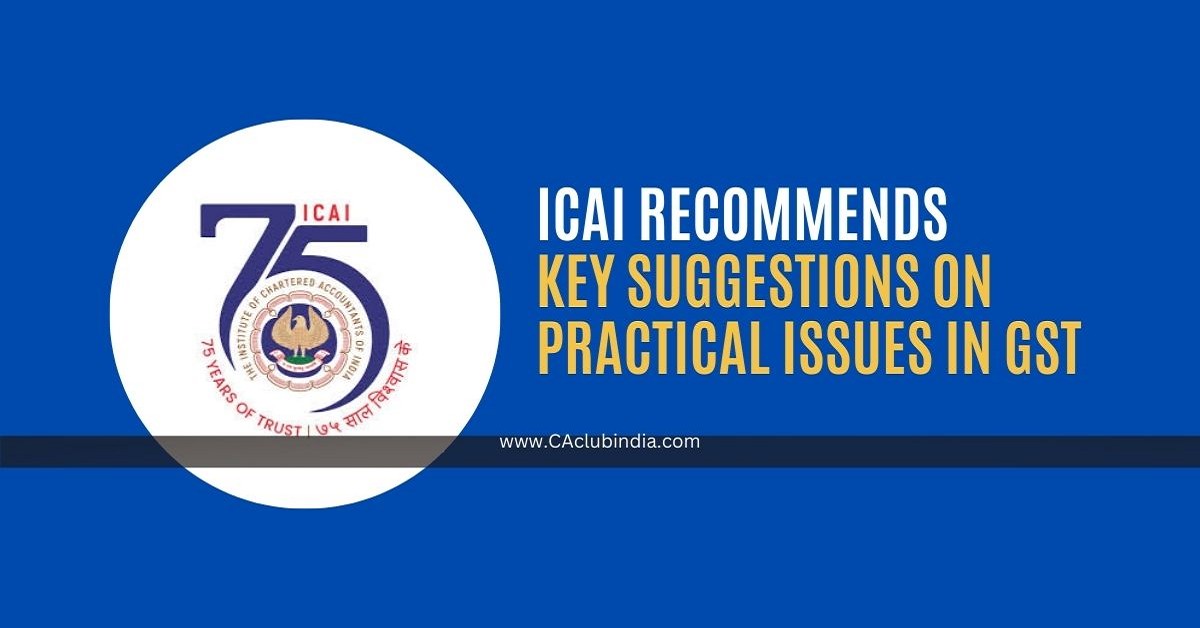The Institute of Chartered Accountants of India (ICAI) has submitted a detailed set of recommendations aimed at resolving persistent compliance and procedural challenges under the Goods and Services Tax (GST). The suggestions, compiled by the GST & Indirect Taxes Committee, cover critical areas such as adjudication, input tax credit (ITC), registration, refunds, returns, and e-way bills.

As GST completes eight years of implementation, ICAI highlighted that many taxpayers continue to face operational bottlenecks, despite several reforms. Among the key recommendations are:
- Defined Timelines for Notices: Taxpayers should be given at least seven working days to respond to Form DRC-01A intimations, ensuring fairness and adequate preparation time.
- Virtual Hearings Compliance: Authorities should strictly follow CBIC's instruction to allow online hearings unless physical hearings are specifically requested.
- Dual Service of Notices: Both electronic and physical delivery of notices should be mandatory to avoid ex-parte orders, especially for small traders and rural taxpayers.
- Streamlined Refunds: ICAI has called for a faceless, automated, and time-bound refund mechanism with provisional refunds within seven days and interest credited automatically in case of delays.
- ITC Reforms: Reintroduction of tax rate details in Form GSTR-2B and quarterly summaries for easier reconciliation were suggested. ICAI also recommended automatic restoration of ITC where registration cancellation applications are withdrawn.
- Registration and Business Continuity: Measures such as preview and correction windows for applications, safeguards in cancellation orders, and mechanisms for transferring ongoing proceedings in mergers or demergers were proposed.
- E-Way Bill Updates: The committee urged the inclusion of "Ultimate Recipient" details in Bill-to-Ship-to transactions to align system design with practical supply chain realities.
The ICAI emphasized that these reforms would not only enhance compliance but also reduce litigation, strengthen trust in the tax system, and improve the ease of doing business.
The report has been shared with the GST Council and the Central Board of Indirect Taxes and Customs (CBIC) for further consideration.
Official copy of the Suggestions has been attached below







 CAclubindia
CAclubindia
